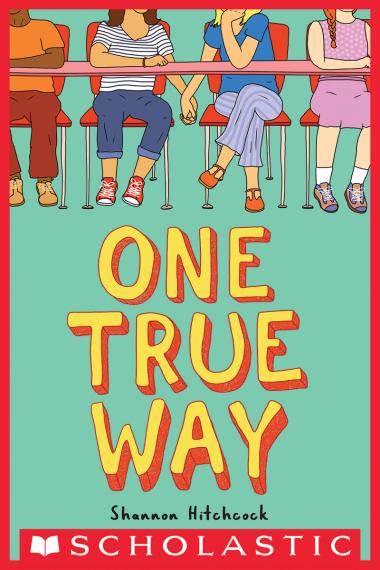
One True Way
About this book
Welcome to Daniel Boone Middle School in the 1970s, where teachers and coaches must hide who they are, and girls who like girls are forced to question their own choices.
Presented in the voice of a premier storyteller, One True Way sheds exquisite light on what it means to be different, while at the same time being wholly true to oneself. Through the lives and influences of two girls, readers come to see that love is love is love. Set against the backdrop of history and politics that surrounded gay rights in the 1970s South, this novel is a thoughtful, eye-opening look at tolerance, acceptance, and change, and will widen the hearts of all readers.Reviews
Praise for One True Way:"Shannon Hitchcock's important story shines a bright light on the struggles that LGBT kids had to deal with in the mid-1970s, giving us a context with which to understand more fully the same struggles that are happening today. In straightforward prose, this honest look shows us how far we've come, and at the same time doesn't deny how far we have to go." --Kathi Appelt, National Book Award Finalist and Newbery Honor-winning author of The Underneath
Praise for Ruby Lee and Me:
"With the poetry of plain speaking, Shannon Hitchcock recreates the daily drama of a vanished world."--Richard Peck, Newbery Award-winning author of A Year Down Yonder
"Hitchcock deftly weaves her narrative through history to gently bring important past events to light. Excellently written, the novel's characters avoid stereotyping and are well-developed, and Hitchcock perfectly captures Sarah Beth's voice as she wrestles with big questions. The somber themes of race relations and personal guilt are handled sensitively and with a good dose of flour, courtesy of Sarah Beth's grandmother, and hope for racial healing is offered. A heartening and important offering for younger readers." --Booklist, starred review
"[A story] about sibling love and self-forgiveness." --Kirkus Reviews
"Sarah's inner struggles take place against the background of integration in a rural North Carolina community; Hitchcock . . . depicts her guilt, anger, and grief with credibility and the important people in her life in sympathetic, fully dimensional fashion." --Publishers Weekly







